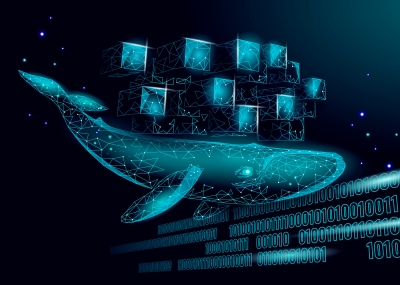What are Docker containers?
The form factor in which your software solution is made available (deployed) determines the scalability and execution options. Here, Docker containers (or containers for short) provide the portability required to install and run software (services) in a cloud environment, on-premises or “at the edge”. This makes containers the ideal form factor for integrating software into modern IT infrastructures. But there are even more reasons to use containers:
Reasons for using containers
- Process isolation for secure execution
One of the most important aspects of using containers is process isolation. Software running within a container can only access defined resources in your IT landscape, such as the network, storage, and others. In addition, software running in one container has no influence on software running in other containers. And you can define the computing and memory consumption of each container individually.
- Get the right software version
Another important aspect is version control. The version information available for each container allows you to determine the software version to use. You can lock to a specific version to ensure that you always get the same version of the software in the container. Or you can choose to always use the latest and greatest version, for example, to run automated tests with the latest build. And there are many more options in between...
- Deploying to your CI/CD pipelines or to your desktop
Another aspect to highlight is the deployment of containers. Containers are made available in so-called container registries, such as Docker Hub, Microsoft Azure Container Registry or Amazon Elastic Container Registry, to name just a few. You can use these containers in Kubernetes – typically used by larger companies – or with Docker Desktop and others. With Docker Desktop, you can use containerized software – like ours – on your own (desktop) computer.
Get your Peak Solution software as a container
Our software solutions include and use the necessary web technologies such as REST APIs, web UIs and security concepts to run in a container. Our containers are versioned and made available in our container registry. This is where we provide you with the necessary software updates and releases. Once registered, you are ready to go and can connect your CI/CD pipelines or install it on your desktop.
Get in touch to learn more about integrating our software into your specific IT infrastructure or to discuss other ways of installing our software. Or ask about cloud hosting of your installation on AWS (SaaS) – operated and supported by us.
Connected solutions
You can click on the links to get more information about each component
Peak Test Data Manager
Manage test and measurement data from various test bench and simulation environments with the Peak Test Data Manager and connect your analysis and AI tools.
Peak Test Management Suite
The Peak Test Management Suite is a test-laboratory management software for test commissioning and the conflict-free planning of physical and virtual test activities and resources.
Related topics
Industry standards for open and extensible solutions
Our data management solutions are based on well-known industry standards that we integrate into open, extensible tool chains.


